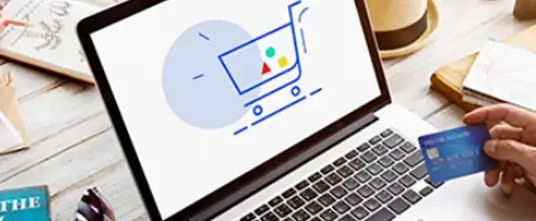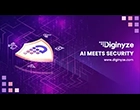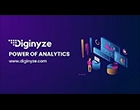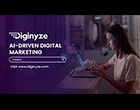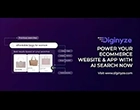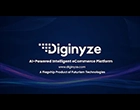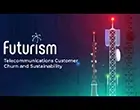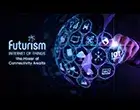Introduction
Ever wonder how brands like Amazon, Netflix, and Starbucks seem to know exactly what you want before you do? That’s the power of personalization; it’s not just smart marketing, it’s survival.
In today’s fast-paced digital landscape, personalization isn’t just a buzzword; it’s a powerful tool driving customer engagement, loyalty, and sales. If you’re in e-commerce, retail, healthcare, education, or any industry with a digital presence, staying ahead of personalization trends is no longer optional. It’s the secret sauce to standing out in a saturated market and delivering unforgettable experiences.
In this guide, we’ll dive deep into the most exciting personalization trends shaping 2025, backed by data and actionable strategies you can implement. Let’s make your personalized marketing efforts smarter, not harder.

Source -marketing360
What Is Personalization?
Personalization tailors content, offers, and experiences to individual customers based on their preferences, behaviors, and data insights. Think of Netflix recommending your next binge-worthy show or Amazon’s eerily accurate product suggestions. This isn’t magic it’s data-driven genius.
But it’s more than just addressing customers by name in emails. Hyper-personalization marketing takes things a step further, leveraging AI, predictive analytics, and behavioral targeting to craft uniquely tailored experiences in real-time.
You would also love to read : A Comprehensive Guide to eCommerce Personalization in the Age of AI
Why Is Personalization Important?
Consumers now expect personalization. In fact:
- 80% of shoppers are more likely to buy from brands offering personalized experiences.
- Companies using data-driven personalization see up to a 20% increase in revenue.
- 63% of consumers stop buying from brands with poor personalization.
If your brand isn’t meeting these expectations, you risk losing customers to competitors who are.

Source - prnewswire.com
Key Personalization Trends to Watch in 2025
1. AI in Personalization
Artificial intelligence is transforming personalized customer experiences (PCE). AI-powered tools analyze vast amounts of data to predict customer needs, recommend products, and automate messaging. From chatbots that remember customer preferences to dynamic pricing models, AI is the backbone of real-time personalization.
- Example : Spotify’s Discover Weekly playlist uses AI to analyze your listening habits and suggest songs you’ll love.
2. Hyper-Personalization
This advanced form of personalization dives deeper, using real-time behavioral data to create highly specific offers and experiences. Hyper-personalization marketing ensures every touchpoint is tailored to the customer’s exact moment and mindset.
- Example : Starbucks’ app uses purchase history and location to send customized drink offers.
3. Predictive Analytics
With predictive analytics, brands can forecast customer behavior and optimize campaigns. By analyzing historical data and patterns, you can predict what customers will want next.
- Example : Netflix’s predictive models ensure you’re always hooked on the next show.
If you want to read about predictive analytics in more detail read our latest Guide : Predictive Analytics – A Diginyze Guide
4. Behavioral Targeting
Gone are the days of broad demographic targeting. Behavioral targeting hones in on specific actions, such as browsing history or cart abandonment, to deliver timely and relevant ads.
- Example : Ever browsed a product online and seen an ad for it minutes later? That’s behavioral targeting in action.
5. Customer Journey Mapping
Understanding the full customer journey is crucial for effective personalization strategies. Mapping out every interaction point helps you identify opportunities for real-time personalization and improve the personalized customer experience.
6. Personalization in E-commerce
E-commerce brands are leading the charge in data-driven personalization. Personalized product recommendations, dynamic email campaigns, and tailored landing pages boost conversion rates and foster loyalty.
- Example : Amazon generates 35% of its revenue through personalized recommendations.
7. Personalization in Marketing Beyond E-commerce
Personalization isn’t limited to retail. Industries like healthcare, education, and entertainment are embracing tailored strategies:
- Healthcare : Patient portals offering customized health insights.
- Education : E-learning platforms adapting to individual student progress.
- Entertainment : Streaming services suggesting content based on viewing patterns.
Benefits of Personalization
Implementing advanced personalization strategies offers significant advantages for businesses:
- Increased Engagement : Tailored emails and content capture attention, resulting in higher open and click-through rates.
- Stronger Loyalty : Personalization makes customers feel understood and valued, fostering long-term relationships and repeat business.
- Boosted Sales : Customized offers and recommendations resonate more with customers, driving higher conversion rates compared to generic campaigns.
- Efficient Marketing : By targeting the right audience with relevant messaging, businesses save resources and achieve better ROI.
Personalization transforms marketing into a powerful tool for building connections, driving sales, and optimizing resources.

Source -emarketer
Actionable Strategies to Implement Personalization
Ready to take your personalized marketing game to the next level? Here’s how:
1. Start with Data
Collect and analyze customer data to uncover preferences, behaviors, and needs. Use tools like Google Analytics, CRM software, or AI platforms to gain insights.
2. Segment Your Audience
Group your customers into specific segments based on demographics, behaviors, or purchase history. Segmentation is the foundation of effective behavioral targeting.
3. Invest in AI and Automation
Use AI-powered tools to streamline real-time personalization.
4. Prioritize the Customer Journey
Focus on improving the entire customer experience. From onboarding to post-purchase, ensure every interaction feels tailored and seamless.
5. Test, Learn, Repeat
Regularly test your strategies to find what works best. A/B testing, heatmaps, and analytics tools help optimize your efforts.
6. Leverage Personalized Email and Content Marketing
Email remains one of the most effective channels for personalization especially when done right.
Personalized Email Marketing
Move beyond just using the customer's name. Leverage data like browsing history, purchase behavior, and location to send hyper-relevant emails that convert. For instance, a follow-up email with accessories for a recently purchased product is more likely to resonate than a generic newsletter.
Custom Email Marketing
Custom emails allow you to tailor messages based on subscriber segments. Whether it’s sending exclusive discounts to loyal customers or re-engagement campaigns to dormant ones, custom emails boost open rates, engagement, and ROI.
Hyper-Personalization in Emails
This involves using AI and real-time behavioral triggers to craft emails that respond to customer intent at the moment. For example, sending a limited-time offer when a user abandons their cart or browses a product category repeatedly.
Personalized Content Marketing
Go beyond static blogs or landing pages. Create dynamic content that adapts based on user profile or behavior. A returning visitor could see a different headline or CTA than a new one, increasing relevance and engagement.
Marketing Personas
Develop detailed customer personas to guide both your content and email strategy. Knowing your audience segments such as “value seekers” vs. “brand loyalists” helps you create personalized messages that speak directly to each group’s needs and motivations.
Real-Life Personalization Examples
Want inspiration? Check out these brands nailing personalization:
- Netflix : Masters of predictive analytics and tailored recommendations.
- Nike : Offers customized sneakers and shopping experiences via its app.
- Coca-Cola : Viral “Share a Coke” campaign with names on bottles.
- Sephora : Uses customer data to deliver personalized beauty recommendations online and in-store.
The Future of Personalization
As technology advances, personalization in marketing is becoming more sophisticated, enhancing customer experiences across industries. Here’s a glimpse of what lies ahead:
- Voice Personalization : AI assistants, like Alexa and Siri, will offer increasingly tailored responses and suggestions, adapting to individual user preferences and contexts.
- Advanced Predictive Analytics :Businesses will leverage even more precise forecasting tools to anticipate customer needs, enabling hyper-targeted and timely recommendations.
- Personalization across Channels : Marketing will become seamlessly integrated across platforms, ensuring consistent, personalized experiences from email and social media to in-store interactions.
- Ethical Data Use : With growing awareness of privacy, brands will need to prioritize transparency and secure user consent for data collection, fostering trust and long-term loyalty.
These innovations will not only enhance customer satisfaction but also redefine how businesses build connections in a data-driven, customer-centric world.
Final Thoughts
Personalization is no longer just a marketing tactic it’s a vital strategy that powers meaningful customer connections and drives business growth. From hyper-personalized emails to AI-driven product recommendations, personalization shapes how brands engage, convert, and retain customers in today’s competitive landscape. If you want your marketing to truly resonate and stand out, embracing personalization isn’t optional it’s essential.
Ready to transform your eCommerce marketing and deliver unforgettable, personalized experiences? Partner with Diginyze, the AI-powered eCommerce platform, and unlock the full potential of personalization marketing and data-driven marketing for your business today!
Book a free demo now!
FAQs
1. What is personalization in marketing?
Personalization in marketing is tailoring content, offers, and customer experiences based on individual preferences, behaviors, and data insights to create meaningful interactions.
2. What are the latest personalization trends in 2025?
Key trends include AI-powered personalization, hyper-personalization, predictive analytics, behavioral targeting, customer journey mapping, and real-time personalization.
3. How does AI impact personalization?
AI analyzes vast data sets to predict customer behavior, recommend products, and automate personalized interactions, making real-time personalization more efficient and accurate.
4. What is hyper-personalization marketing?
Hyper-personalization uses advanced tools like AI and real-time data to create highly specific and relevant customer experiences beyond basic personalization.
5. What industries benefit from personalization strategies?
Personalization is impactful across industries such as e-commerce, retail, healthcare, education, and entertainment, tailoring solutions to customer needs in each sector.
6. How does personalization improve the customer experience?
Personalization enhances the customer experience by delivering relevant offers, recommendations, and interactions, making customers feel valued and understood.
7. What is data-driven personalization?
Data-driven personalization uses customer data, like purchase history and online behavior, to create targeted and relevant marketing campaigns.
8. What is behavioral targeting in marketing?
Behavioral targeting focuses on specific customer actions, such as browsing or purchasing habits, to deliver relevant content or ads at the right time.
9. What role does predictive analytics play in personalization?
Predictive analytics uses historical data to forecast customer behavior and preferences, helping brands optimize their campaigns and improve ROI.
10. What are some examples of successful personalization?
Examples include Netflix show recommendations, Amazon - product suggestions, and Starbucks - app-based drink offers customized by location and purchase history.
11. What are the benefits of personalization for businesses?
Personalization boosts customer engagement, loyalty, conversion rates, and sales while enhancing overall marketing efficiency and ROI.
12. How can personalization improve e-commerce sales?
E-commerce businesses can use personalization to recommend products, send targeted emails, and create tailored landing pages, significantly increasing conversion rates.
13. How can Diginyze help with personalization strategies?
Diginyze specializes in implementing AI-driven tools, data analytics, and customer behavior insights to help businesses deliver impactful personalization campaigns and improve customer experiences.
Recent Blogs
Explore latest insights and trends in technology and eCommerce.
Case Studies
Your Digital Transformation Starts Here!
Join thousands of businesses transforming with Diginyze. Sign up today and start now!




